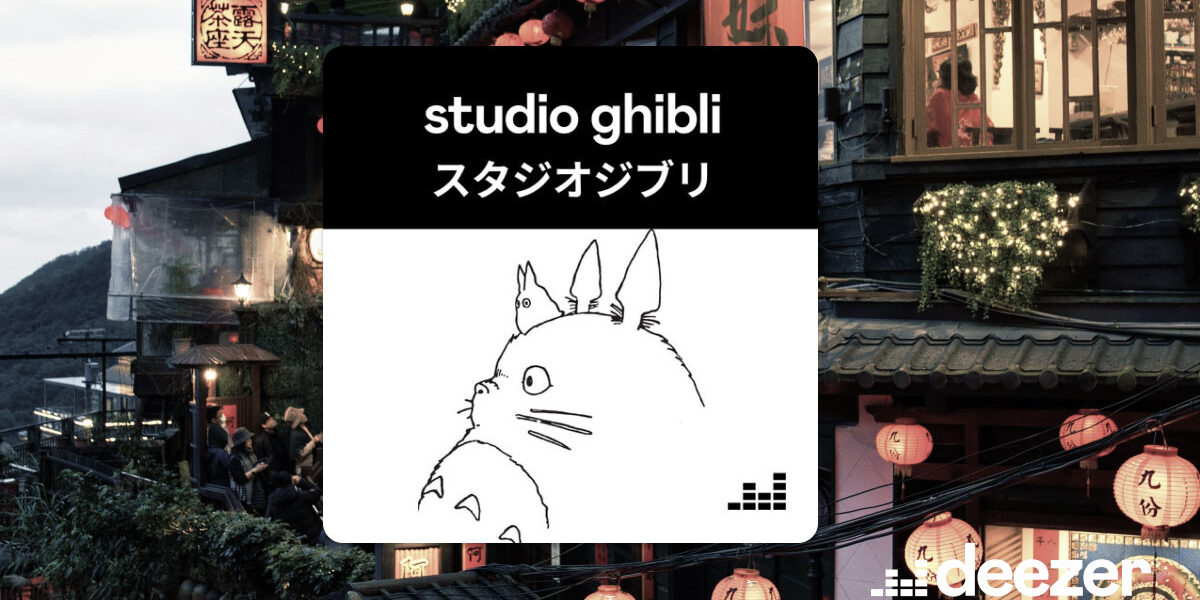Undoubtedly, Studio Ghibli stands as one of the most esteemed anime studios globally. Since its launch in 1985, the studio has consistently delivered, creating some of the top anime films in history.
Its growing library of awe-inspiring productions has garnered numerous accolades and continues to captivate audiences, leaving a lasting impression on the collective consciousness of viewers. Recognized alongside the films — or perhaps wholly intertwined — are the enthralling scores and soundtracks.
Ponyo
From the moment the opening song, “Deep Sea Pastures,” raises the curtains of this film, listeners will immediately take note of the expertly crafted composition that pulsates throughout Ponyo. We have composer Joe Hisaishi to thank for flawlessly capturing the atmosphere that the film excels at portraying. As the music builds, a climactic moment teases then emerges triumphantly alongside the movie’s title, and the sound embodies the essence of Studio Ghibli, a company known for its impeccable storytelling. This is where the studio shines, with critics considering this one of the best anime soundtracks ever produced. Ponyo is an exemplary work of art that elevates the overall cinematic experience to remarkable heights.
Howl’s Moving Castle
Magic permeates every aspect of Howl’s Moving Castle, from its enchanting characters and captivating storyline to the visually stunning steampunk-inspired castle that serves as an abode. Binding these elements together is another extraordinary score by Joe Hisaishi, a composer known for taking all components integral to a story and masterfully weaving them together.
The enigmatic and intriguing nature of Howl, the film’s titular character, is aptly reflected in the main theme, “Merry-Go-Round of Life.” This beloved piano piece stands out as one of the most memorable compositions ever created for a Studio Ghibli soundtrack. Its ethereal and weightless quality captures the magical essence that contributed to the success of Howl’s Moving Castle soundtrack. Hisaishi’s exceptional work in the film would later earn him the accolade of Best Music at the Tokyo Anime Awards, solidifying his talent and contribution to the production.
Nausicaä of the Valley of the Wind
Released in 1984 as one of Studio Ghibli’s initial major productions, Nausicaä of the Valley of the Wind captures the era’s essence through its enthralling score. Composer Joe Hisaishi incorporates pulsating drum sequences and synth-infused arrangements to evoke a distinctive ’80s style that is the backbone of an enchanting tale. Such a grandiose musical experience complements the epic fantasy morality tale portrayed in the film, and the sounds give weight and intense emotion to the overall themes. Ultimately, the story serves as a powerful reflection on humanity’s greed, matching the vast scope of the narrative with its soaring compositions that no other studio could duplicate.
A standout musical moment in the film arises through the ethereal and profoundly moving vocal section featured in the song “Nausicaä Requiem.” Used during a poignant flashback sequence, this song deftly pulls at the heartstrings as it unveils Nausicaä’s deep empathy for creatures. Its reprise played throughout the film effectively rekindles those emotional connections. The score not only stands as one of Studio Ghibli’s finest efforts, but alongside the Kiki’s Delivery Service soundtrack, it also ranks among the most exceptional musical compositions for an animated film from the ’80s.
Ocean Waves
Ocean Waves, an often overlooked gem within the Studio Ghibli collection, gained recognition from a new audience after its delayed inclusion in the entire Studio Ghibli music catalog. The film presents a mature narrative that delicately explores the ambiguity surrounding the sexuality of its main characters. At its core, however, Ocean Waves is a realistic snapshot of the daily lives of high school teens, drama and all. Shigeru Nagata composed the film and its score to deliver a beautiful, almost jazzy aesthetic to accompany the story. The romantic movie is enhanced by an untraditional score that skillfully uses synthesized elements — and the result? A progressive sound, pitch-perfect in execution.
Princess Mononoke
To match the grandeur and scope of the story, Hisaishi masterfully composed the score for Princess Mononoke, featuring both sweeping orchestral pieces and exquisitely delicate piano melodies. The film stands as Studio Ghibli’s most expansive cinematic achievement, boasting a high-fantasy narrative set in a richly woven tapestry of Japanese folklore and magic. Among the standout songs, “Journey to the West” emerges as a quintessential Hisaishi composition. It flawlessly captures the protagonist, Ashitaka, and his raw mixture of fear and awe as he ventures beyond his village for the first time, traveling across the vast unknown. The song swells in tandem with his anticipation, magnifying the sense of the world expanding before him. Hisaishi’s score perfectly embodies that essence, blending magnificent scale with heartfelt storytelling.
Spirited Away
Spirited Away, widely regarded as the pinnacle of Studio Ghibli’s cinematic repertoire by numerous critics, undoubtedly boasts an exceptional sound. The score possesses a darker tonal palette, infused with an eerie cadence that adds to its captivating allure. In the film, protagonist Chihiro and her parents are mysteriously transported to an enchanting yet unsettling spirit world. The music accompanying Chihiro’s liminal journey is simultaneously fascinating and terrifying, exposing the audience to a broad range of emotions experienced by herself and the other main characters. Each note of the Spirited Away soundtrack unfolds dramatically in this otherworldly setting, artfully crafted (yet again) by composer Joe Hisaishi.
Final Thoughts
The essence of Studio Ghibli films revolves around enchantment and breathtaking moments. Longtime anime fans can often trace their affection for anime music back to the captivating theme songs of top anime TV series. In a similar vein, Studio Ghibli extends that same transcendent, visceral delight into the realm of film.
For more than 40 years, the studio has continued churning out exciting music that resonates throughout the films and traverses across generations of viewers. Studio Ghibli’s ability to capture brilliance is only surpassed by the depth of its characters’ emotions, and its impact on the anime genre is undeniable.
To read on the same subject:





